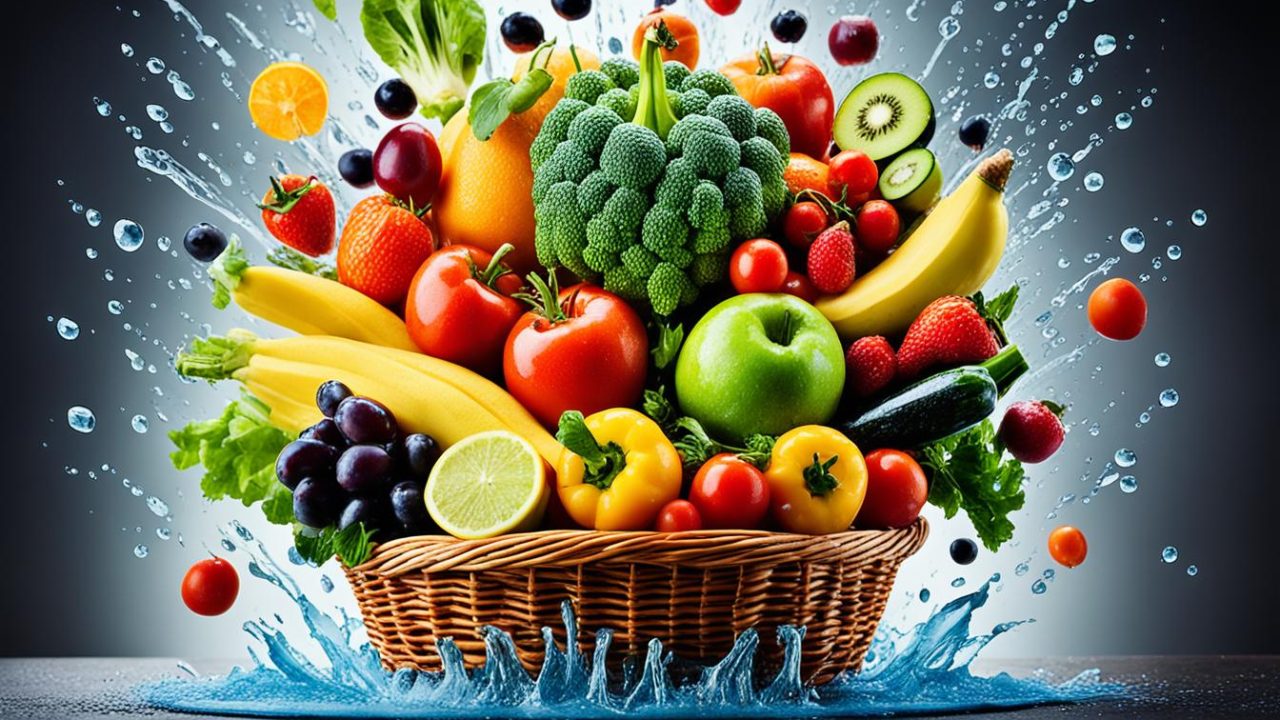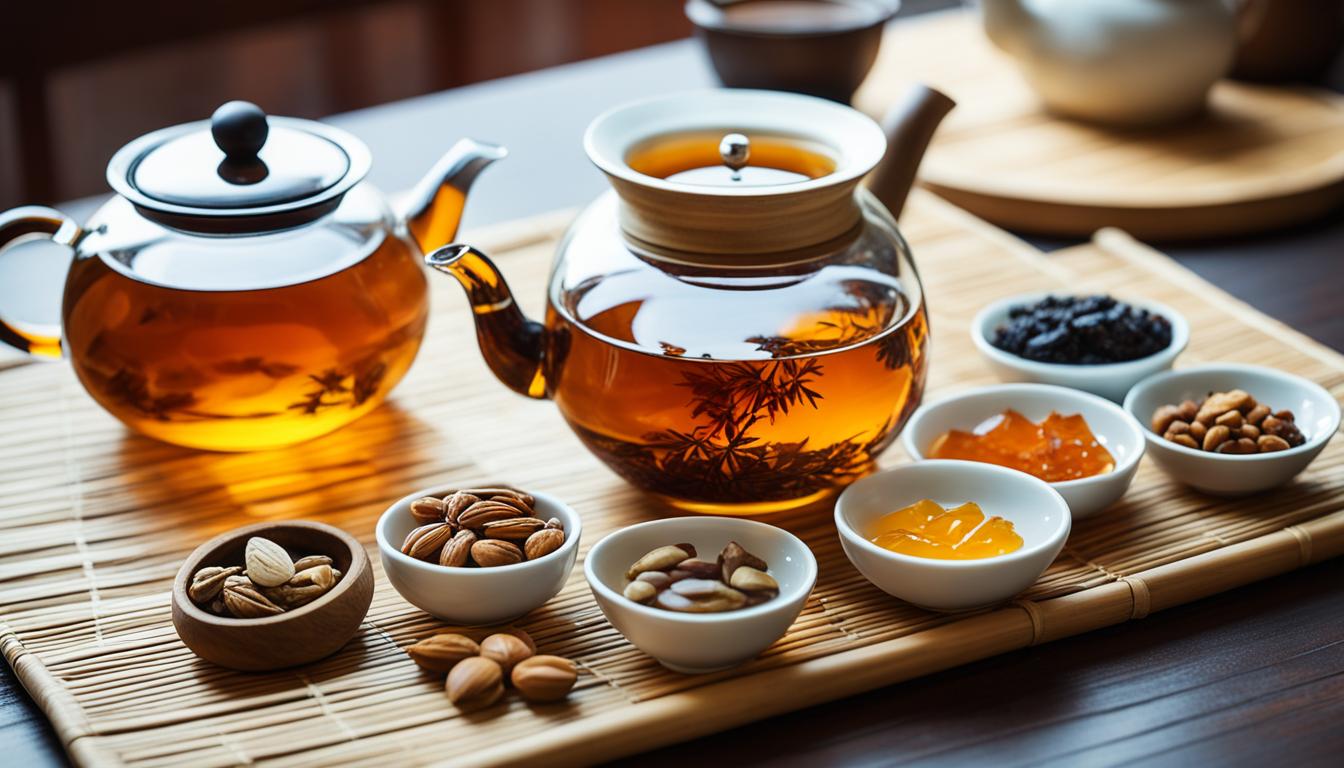Welcome to a fascinating journey into the world of Traditional Chinese tea. With its rich history, cultural significance, and diverse flavors, Traditional Chinese tea has captured the hearts of tea enthusiasts worldwide. From the intricate tea ceremonies to the tantalizing aromas and tastes, every sip of Chinese tea offers a sensorial experience like no other.
Step into the world of Traditional Chinese tea and embark on a delightful exploration. Uncover the secrets behind its origins, discover the ancient traditions and rituals that accompany its consumption, and savor the wide variety of flavors that make each cup unique.
Get ready to immerse yourself in the enchanting story of Traditional Chinese tea, where history, culture, and flavors intertwine to create an unforgettable experience.
A Brief History of Traditional Chinese Tea
Traditional Chinese tea has a rich history that dates back thousands of years. Its origins can be traced to ancient China, where it was first discovered and cultivated. Tea production techniques have evolved and refined over time, shaping its place in Chinese culture and beyond.
The journey of Traditional Chinese tea began during the Shang dynasty (1600-1046 BC), when tea leaves were used for medicinal purposes. It was during the Tang dynasty (618-907 AD) that tea started to be consumed as a beverage.
The art of tea cultivation and production significantly advanced during the Song dynasty (960-1279 AD). The spread of Buddhism in China also played a crucial role in popularizing tea consumption, as it was believed to aid in meditation and concentration.
Tea production in ancient China involved meticulous procedures, including harvesting, withering, rolling, baking, and aging. These techniques were perfected over generations, resulting in teas with distinct flavors and aromas.
The historical importance of Traditional Chinese tea in Chinese culture cannot be overstated. It has been an integral part of Chinese society, from everyday life to special occasions. Tea ceremonies, where tea is prepared and served with precision and grace, reflect the reverence and respect for this cherished beverage.
Modern tea production techniques have embraced advancements in technology, enabling the preservation of traditional tea-making methods while meeting the demands of a global market. Today, China remains one of the largest tea producers and exporters in the world.
The development and evolution of Traditional Chinese tea have shaped its vast array of flavors, making it a captivating beverage that continues to delight tea enthusiasts worldwide.

Cultural Significance of Traditional Chinese Tea
Traditional Chinese tea holds a deep-rooted place in Chinese culture, with its customs, rituals, and traditions being practiced for centuries. This beverage is not just a simple drink; it embodies the essence of Chinese heritage and fosters social connections.
Tea ceremonies, also known as “gongfu tea,” are an integral part of Chinese tea culture. These ceremonies are characterized by meticulous preparation and serving methods that reflect the respect and appreciation for tea. Each step, from selecting the tea leaves to brewing and pouring the tea, is performed with grace and precision.
Furthermore, tea serves as a medium for social gatherings in both casual and formal settings. In everyday life, tea houses or teahouses provide spaces for friends and acquaintances to come together, engage in conversations, and experience the tranquility that tea offers. These spaces foster connections, promote relaxation, and provide a break from the fast-paced world.
Moreover, tea plays a significant role in formal ceremonies and events. From weddings to business meetings, tea is deeply intertwined with Chinese etiquette. It is customary to offer tea to guests as a sign of hospitality and respect. The act of pouring tea for others is seen as a gesture of goodwill and establishes a harmonious atmosphere.
Traditional Chinese tea not only satisfies the taste buds but also enriches the cultural fabric of China. Its rituals and social significance create meaningful connections and strengthen relationships. From the elegant tea ceremonies to the warmth of social gatherings, Traditional Chinese tea exemplifies the beauty and harmony of Chinese culture.

Embrace the Cultural Traditions Through Tea
By participating in and appreciating the cultural practices surrounding Traditional Chinese tea, individuals can gain a deeper understanding of Chinese culture. Through its customs, rituals, and social gatherings, this ancient beverage transcends its role as a simple drink and becomes a conduit for cultural exchange and connection.
Diverse Flavors of Traditional Chinese Tea
Traditional Chinese tea offers a captivating array of flavors that tantalize the senses and create a delightful experience for tea enthusiasts. With its rich history and cultural significance, Traditional Chinese tea encompasses a wide range of types, each with its own unique aroma and taste.
One of the most popular types of Traditional Chinese tea is green tea. Known for its fresh and grassy flavor, green tea has a light and refreshing aroma that invigorates the senses. It is cherished for its health benefits and is often enjoyed as a daily staple.
For those seeking a bolder flavor, black tea is a timeless choice. With its robust and full-bodied taste, black tea offers a rich and malty aroma that captivates the palate. It is perfect for those who prefer a stronger and more robust tea experience.
Another intriguing variety is oolong tea, which strikes a balance between green and black tea. Oolong tea boasts a diverse range of flavors, from floral and fruity to toasty and nutty. Its complex aromas and distinct taste make it a favorite among tea connoisseurs.
Each cup of Traditional Chinese tea offers a unique sensory experience, from the delicate flavors of green tea to the boldness of black tea and the intricate aromas of oolong tea. Whether you crave a soothing cup to relax or a stimulating brew to invigorate your senses, Traditional Chinese tea has a flavor profile to suit every taste.






